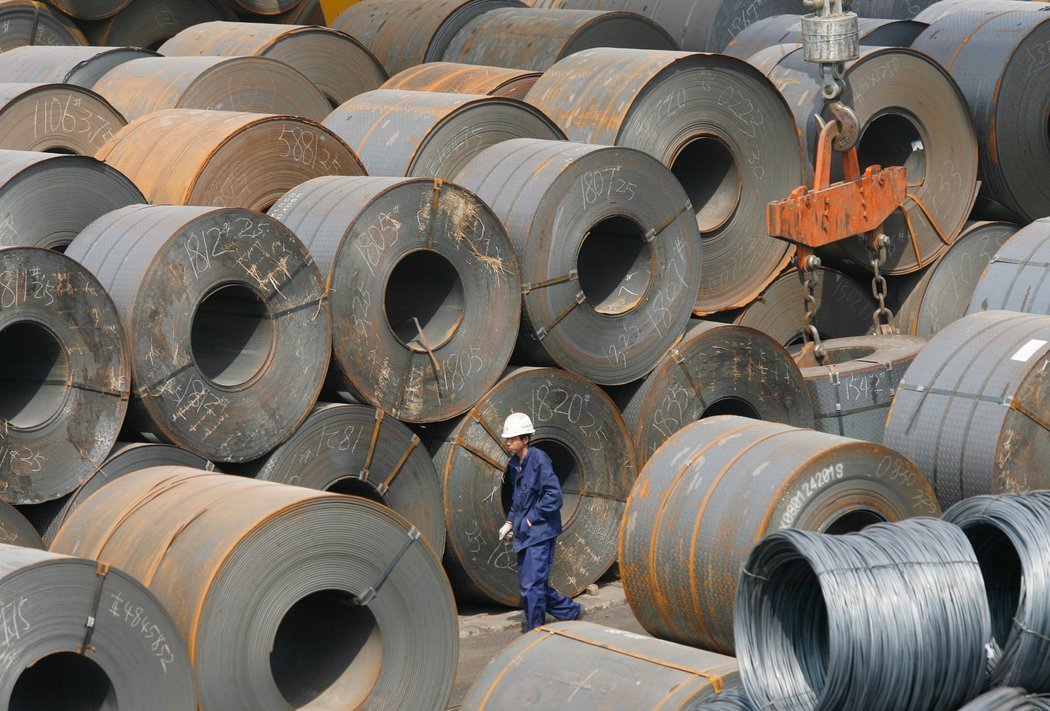Media Report

- Bloomberg reports: "President Donald Trump said he'll confront China "very strongly" over trade in the coming weeks, as his administration plans to announce on Friday a final list of tariff targets, which will be imposed shortly thereafter. "China could be a little bit upset about trade because we are very strongly clamping down on trade," Trump said in an interview with Fox News's Bret Baier airing on Wednesday. The interview was conducted Tuesday aboard Air Force One after Trump met North Korean leader Kim Jong Un in Singapore. The comments will heighten expectations that China will retaliate with tariffs of its own if the U.S. goes ahead with its plans. A spokesman for China's foreign ministry reiterated at a briefing in Beijing on Thursday that previous progress in trade talks will be lost if the U.S. introduces new tariffs."
- CNBC reports: "China's government renewed its threat Thursday to scrap deals with Washington aimed at defusing a sprawling trade dispute as the White House prepared to release a list of Chinese goods targeted for tariff hikes. U.S. President Donald Trump has threatened to raise tariffs on up to $150 billion of Chinese goods in response to complaints about Beijing's trade surplus and technology policy. As part of that, the White House is due to issue a list on Friday of $50 billion of Chinese goods targeted for a 25 percent tariff. Beijing has promised to buy more American soybeans, natural gas, and other exports but warned after June 3 talks between U.S. Commerce Secretary Wilbur Ross and China's top economic official, Vice Premier Liu He, that all deals were off if Trump's threatened tariffs went ahead... Beijing also has announced plans to cut import duties on autos and some consumer goods and to ease limits on foreign ownership in auto manufacturing, insurance, and some other industries, though those don't directly address U.S. complaints."
- The New York Times reports: "China's government has been trying to break the country's addiction to ever-rising debt, but its effort to crack down on easy money is starting to hit growth in the world's second-biggest economy. Beijing has been concerned in recent years about the increased reliance on credit to keep the economy expanding briskly, worrying that it could lead to a financial crisis, or to a long period of stagnation like the one in Japan after the real estate market burst in the early 1990s. But curbing debt may have significant consequences in China and elsewhere. Countries around the world are much more closely tied to China than ever before, not just because of its role as the world's biggest manufacturer by far, but also, increasingly, as a consumer. An economic slowdown in China — coupled with the knock-on effects of widening trade disputes and slowing growth in Europe — may augur poorly for a global economy that even recently seemed in rude health."
Calendar
- 2018-06-13 The Unexpected Winner From the Trump-Kim Summit: China
- 2018-06-12 China suggests sanctions relief for North Korea after Trump-Kim summit
- 2018-06-11 G7 chaos is a PR win for China
- 2018-06-10 China, Russia Solidify Growing Eastern Bloc as Trump Rattles G-7
- 2018-06-08 US expands China health alert after acoustic incident
- 2018-06-07 A Medical Mystery Grows as U.S. Consulate Workers in China Fall Ill
- 2018-06-06 What Facebook Shared With Chinese Hardware Companies: DealBook Briefing
- 2018-06-05 A Trump-Kim Deal Could Send China’s Trade With North Korea Soaring
- 2018-06-04 June 12 could be a big date for US-China ties — and not because of North Korea
- 2018-06-03 US, China End Latest Trade Talks Without Settlement
News
- Bloomberg Trump Says He May Upset China on Trade as U.S. Tariffs Loom
- CNBC China threatens to scrap US trade deals if the White House hikes tariffs on Chinese goods
- The New York Times As China Curbs Borrowing, Growth Shows Signs of Faltering
- Reuters China's clean skies battle expands, clouding economic outlook
- The Wall Street Journal China Tech Giants' Costly Wars to Go Cashless
- Bloomberg China's Economy Is Slowing Just as Trump Readies a Trade Beating
- The New York Times South Pacific Nation Shrugs Off Worries on China's Influence
- The Wall Street Journal China's Investors Pour Into Western Biotech Startups
- ABC News China's economic growth slows to multi-decade lows across industrial, infrastructure and retail
- Quartz Chinese internet users are surprisingly sympathetic to Einstein's racist remarks
- Bloomberg The Company Making Billions Off China's Worried Parents
- Quartz Every new car in China must have a tracking chip starting next year
Commentary
- The New York Times Why Are Hong Kong's 'Localists' on Their Own?
- Robotics and Automation News Chinese automakers are better off innovating in electric and autonomous technology
- International News Lens Oil Price Rises Could Push US and China Back into a Trade War
- Science Trends How Public Opinion Affects Air Quality: A Chinese Case Study
- Bloomberg China's Banks Are Still in Trouble
- Financial Times China poses ultimate test of Trump's rationality
- Live Science What's Up with This 'Half-Fish, Half-Bird' in China?
- Forbes India's Economy Beats China
